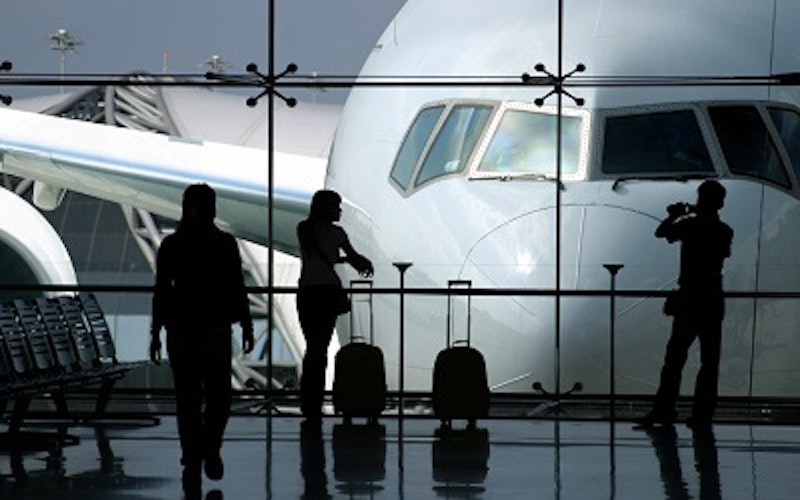
Culture At Large
What airports reveal about religious pluralism
In his Easter reception for Christian leaders, Prime Minister David Cameron called the United Kingdom a “Christian country” and asked faith organizations to play a greater role in society. While his speech and follow-up article are worthy of analysis, I want to look at what the reaction, notably a protest from 50 prominent atheists, tells us about the nature of secularism.
The main point of the protest was that by calling the U.K. a Christian country, Cameron was fostering division. Since not everyone in the country is a Christian, the argument goes, it is unfair to honor one group over another.
We only need to pay attention to a feature of one airport to see the flaws in this argument. In Terminal 5 of London's Heathrow airport, I recently discovered a curious sign of the times. Just between a magazine stand and the toilets sits a small space labeled the “multi-faith room.” The size and location of the room is telling. In this massive airport, dedicated to conspicuous consumerism and a thirst for new experiences, all that’s allowed for religious practice is a space smaller than the serving counter of a coffee shop.
The general preference in both the airport and in secularism is for religious practice to be a hermit-like activity. Secularism has attempted and in many ways succeeded in pushing any “non-mainstream” views out of the public sphere. The message is clear: if you wish to believe anything that is not officially sanctioned, you must do so privately, away from the world of shops, work and, of course, politics.
If faith is to mean anything, it must engage everything.
Many would argue, however, that if faith is to mean anything, it must engage everything. The growing role of faith organizations in fighting slavery, poverty and injustice show that it is precisely in marketplaces, in streets and in departure lounges that faith works best. It is at this level, rather than at the level of favoring one belief over another, that Cameron seems to want Christian organizations to be more active. His call is for British government to recognize the vital role that churches continue to play by removing the obstacles to their work. Rather than putting Christianity - or any faith - in a side room, this work would encourage all of society to be affected by the passion and purpose that come from a life of faith.
The fact that airport architects in the U.K. favor “multi-faith” spaces over specific spaces for specific religions is telling. In a “multi-faith room,” there is little space for faiths to celebrate their uniqueness. Instead, what is asked for is a kind of religious blancmange, where one religion is indistinguishable from another. “Have faith if you must,” says secularism. “But make them all alike.”
Of course, there should be and must be a place for those of different faiths and none to practice love and acceptance towards each other and the world around them. What this means, however, is not shoe-horning everyone together or pushing faith to the margins, but celebrating what is unique. On this point, another airport offers a more useful paradigm. In Germany's Frankfurt airport, I found separate rooms, prominently marked, for four different faiths. This is a sign of respect for faith in the public sphere and a realization that people of different faiths can live and work together, even while we recognize what sets us apart.
Topics: Culture At Large, Theology & The Church, Other Religions, News & Politics, World